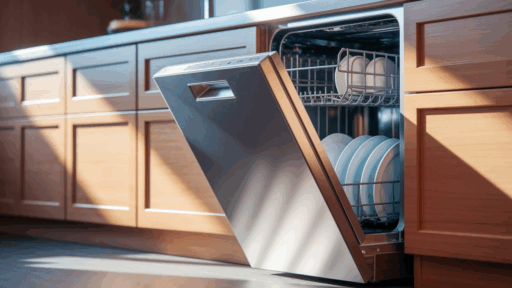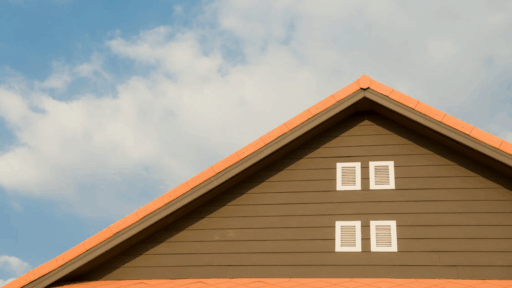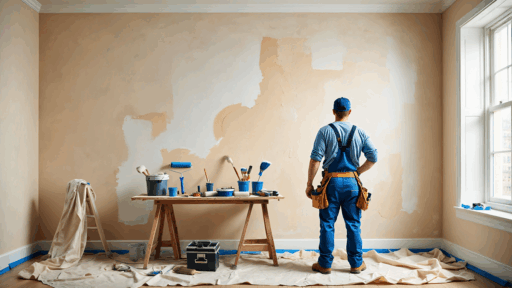Moving day arrives faster than expected, bringing with it a mountain of tasks that seem to multiply overnight. Between hiring movers, updating addresses, and figuring out what stays or goes, the very act of moving houses becomes a full-time job. Many people focus on the physical process of moving boxes and lose sight of the mental preparation needed to execute this drastic transition. In this blog, we’ll offer practical steps to organize your move in an efficient way and reduce stress from planning to settling in.
Pre-Move Strategies to Avoid Stress
Preparing before your move is the best way to keep your stress levels low and avoid problems later. If you have everything planned out, moving will be easy and less stressful for everyone involved. The following are the main pre-move tips to follow:
Organize and Plan Early
Start by making a list of all the tasks you need to do and when you need to accomplish them. Go through your home room by room and make a list, then color code or give numbers to each room so you can see how much you’re progressing. Plan your moving date first, then count backward from that date to know when each task needs to be completed. This way, you break down the big tasks into smaller ones, which become very easy to handle.
Create a Moving Checklist
Write everything down on paper so that you don’t overlook essential steps during your busy moving period. Make sure you call all your utility service providers, like electricity, gas, water, and internet, to book disconnection and reconnection times. You may need to research several reputable moving services in your area and get written estimates from at least three providers so that you can compare their prices and services. Also, don’t forget to change your address with your bank, credit cards, and other important places that send you items by mail.
Declutter Before You Pack
The next important tip would be to go through each room and decide what you really want to take with you to your new home. Make four piles for your things: keep, donate to charity, sell, and throw away completely. This step is a cost-saver since many moving services calculate their fees according to how much stuff you need to move.
Prepare an Essentials Kit
When you get to your new home, prepare special boxes with whatever you’ll need right away. Put in things like your toothbrush, medications, chargers for your phone, clean clothes, and essential documents that you absolutely can’t get along without. Include comfort items that put you in a good mood, like your favorite snacks, toys for children, or a cozy blanket to relieve stress. To make this easier on you, think about what you would pack on a weekend trip and add the same types of necessities. You can keep these boxes with you in the car so you have access to them as soon as you arrive at your new place.
Hire Professional Movers
Professional moving service providers do all of the lifting and carrying for you so that you avoid injuring yourself and damaging your furniture. They’re trained to fill a truck appropriately and handle fragile items carefully throughout the move. If you aim to find reputable companies with good track records, start looking for movers early and read reviews from other customers. After getting detailed estimates, ask about insurance coverage and who takes responsibility if something gets broken during the move.
Label Your Boxes
Create a system for marking your boxes to know what’s inside them and where they should go in your new home. Write clear, specific labels like “Kitchen — Pots and Pans” instead of just “Kitchen” so you can find things easily later. Label at least two sides of every box because movers will probably stack them on top of each other, and you won’t be able to see all sides.
Handle Unforeseen Challenges
Moving day usually has its share of surprises, such as traffic delays, damaged furniture, or equipment problems that you weren’t anticipating. Rather than getting upset, try to focus on solutions and remain calm even when things don’t work out as expected. Have backup plans ready, like taking different routes to your new home or having secondary contact details of your movers.
Post-Move Strategies to Settle In
Once you move in, take some time to settle in instead of rushing to do everything all at once. Below are the necessary post-move strategies to implement:
Priority-based Unpacking
Start unpacking the most important boxes first, like bedding, so you can sleep comfortably, and kitchen basics, so you can cook. Work on one room completely before moving to another room, so you don’t create a mess everywhere at the same time. Take time to put things in their places as you unpack instead of putting items anywhere they fit.
Do Any Necessary Repairs
Walk through your new place carefully and write down anything that needs repairs or improvements. Before you worry about making things look perfect, take care of safety issues like electrical problems or water leaks. If you discover problems with the structure or require roof repairs, have experts on it right away to prevent bigger damage from happening later. Prioritize the most essential repairs first, and then move to minor upgrades when you have a few spare hours. Getting these things done early helps you settle well into your new home while preventing expensive home maintenance disasters.
Meet Your Neighbors
Introducing yourself to the neighbors is a good start for settling well into your new area. Tell them a little about yourself, and when you get a chance, ask about the neighborhood, local services, and community events that interest you. If you want, you can look for clubs, volunteer work, or activities where you can meet new people who share the same hobbies and interests as you.
Create a Familiar and Comfortable Space
In your new place, put up pictures of your family and friends and artwork that makes you smile when you look at it. If the layout allows it, position your furniture in a way that reminds you of the spaces you loved best in your old home. Play music that you like and add scents or light that create a cozy, welcoming ambiance in your home. Do activities that you enjoy, like cooking a favorite dish or reading in a comfortable chair, which would be a start to making happy memories in your new home.
Get Enough Sleep
Set up your bedroom so that you can get a good sleep while you’re adjusting to your new environment. Moving messes with your regular sleep routine, but getting sufficient sleep helps you cope with stress and make clear decisions. Create a comfortable sleeping place with good bedding, the right temperature, and minimal noise to rest well. You must stick to your normal bedtime routine and avoid looking at phones or laptops before bed to help your body adjust to your new environment.
Streamline Your Move
The secret of stress-free moving is to treat it like a project instead of a crisis. Every hour of planning you do beforehand will save you hours of confusion later when boxes are scattered everywhere. Decluttering before packing saves money and spares you the frustration of unpacking things you never required. Your new home deserves more than haphazardly placed stuff thrown into random rooms. Follow these simple steps, and you’ll be genuinely excited about your fresh start instead of exhausted by the process.








